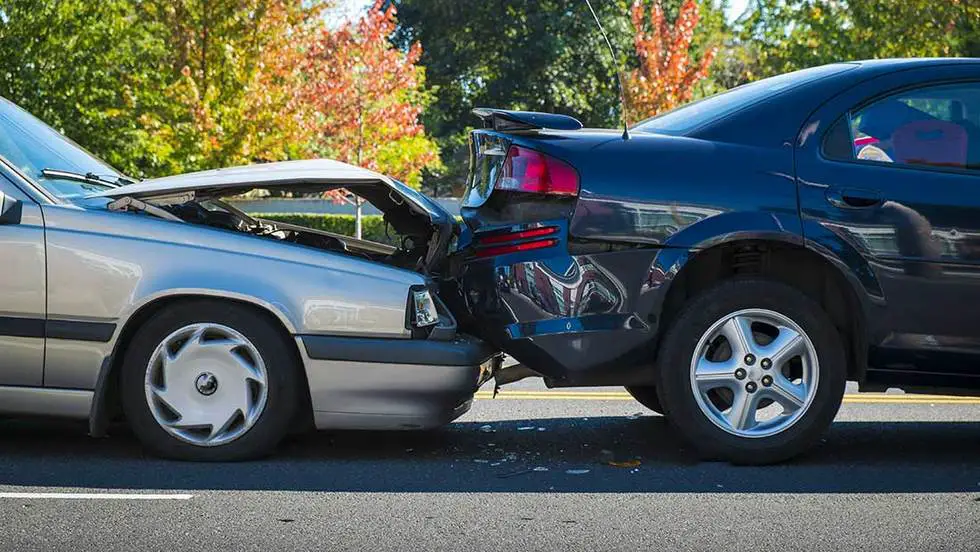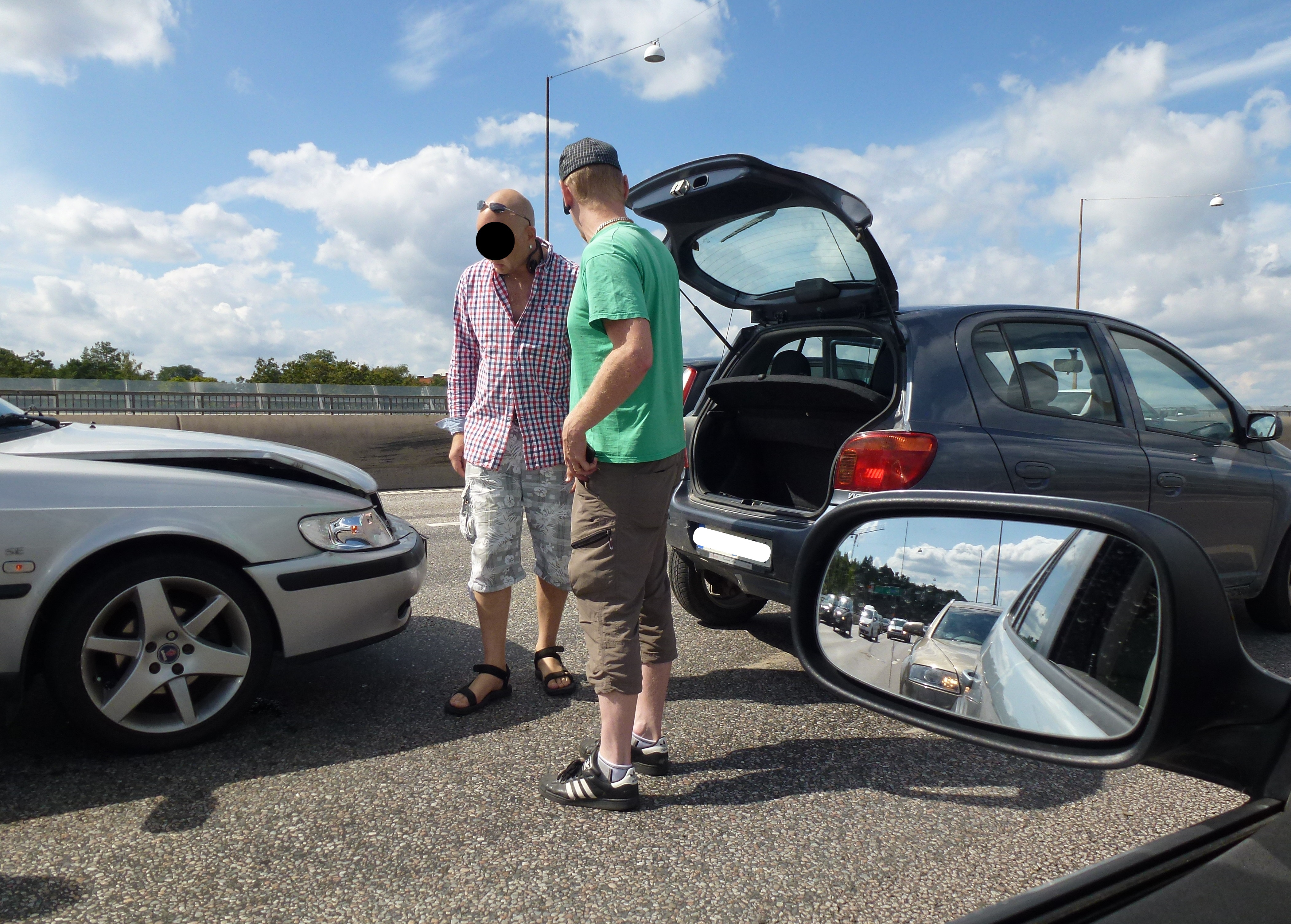Brake checking is when a driver suddenly brakes to force a tailgating vehicle to slow down. It’s dangerous, often causing rear-end collisions, and is illegal in many places due to the risk of accidents.
Brake checking is a dangerous driving maneuver where a driver intentionally slams on the brakes or suddenly reduces speed, often as a response to tailgating or road rage. While it may seem like a way to “teach a lesson” to an aggressive driver, brake checking can have severe consequences. Not only does it significantly increase the risk of rear-end collisions, but it can also result in legal penalties and liability issues for the driver performing the brake check.
In this detailed blog post, we will explore what brake checking is, why it happens, the dangers associated with it, and the legal ramifications. We’ll also look at how drivers can respond safely to tailgating without resorting to risky maneuvers.

Contents
What Is Brake Checking?
Brake checking is a reckless driving action in which the driver in front intentionally hits their brakes to cause the vehicle behind them to slow down or stop suddenly. This maneuver is typically carried out in response to tailgating, where one vehicle is following another too closely. The driver performing the brake check may do this out of frustration, road rage, or as an attempt to control or “punish” the tailgater.
However, the sudden stop leaves little time for the following driver to react, potentially leading to a rear-end collision. In many cases, the brake-checking driver will speed away, leaving the tailgater to deal with the consequences.
Why Do People Brake Check?
People brake check mainly for the following reasons –
1. Tailgating Frustration
The most common reason for brake checking is frustration with tailgating. Tailgating is when a driver follows another vehicle too closely, often at speeds that leave little room to stop safely in case of an emergency. Tailgating is not only annoying but also dangerous. In response, some drivers resort to brake checking to scare the tailgater into backing off.
2. Road Rage
Road rage is a major contributor to brake checking incidents. A driver who feels wronged or angered by another driver’s behavior may use brake checking as a form of retaliation. This aggressive driving behavior is both reckless and dangerous.
3. Power and Control
In some cases, drivers brake check as a way to assert dominance or control over other drivers. This need for control can stem from stress, impatience, or a sense of entitlement on the road. Unfortunately, this tactic places everyone in danger.
4. Insurance Fraud
Although less common, some individuals may engage in brake checking to stage a rear-end collision for the purpose of filing a fraudulent insurance claim. The person performing the brake check may deliberately cause the accident in hopes of collecting compensation from the other driver’s insurance policy.
The Dangers of Brake Checking
Brake checking is extremely hazardous, not just for the two vehicles directly involved but for other road users as well. Below are some of the dangers associated with this reckless maneuver:
1. Increased Risk of Collisions
Brake checking leaves the driver behind with very little time to react. Even a slight delay in reaction can result in a serious rear-end collision. These accidents can cause significant vehicle damage and, more importantly, serious injuries or fatalities.
2. Chain Reaction Crashes
In heavy traffic or multi-lane highways, a brake check-induced collision can cause a domino effect, leading to multiple vehicles crashing into each other. These chain-reaction accidents are especially dangerous and difficult to avoid.
3. Injury or Fatality
The injuries from rear-end collisions can range from whiplash to severe head, neck, or spinal trauma. At high speeds, the consequences can be catastrophic, potentially leading to fatalities for both the driver performing the brake check and the vehicle that collides into them.
4. Loss of Vehicle Control
Brake checking can lead to loss of control, particularly if the driver behind swerves to avoid a collision. This can result in the vehicle leaving the road or hitting other cars or obstacles, increasing the risk of a more severe crash.

Legal Consequences of Brake Checking
Brake checking is not only dangerous but also illegal in most places. While the laws surrounding brake checking vary by location, most jurisdictions consider it a form of reckless driving or aggressive driving, both of which are punishable offenses.
1. Reckless Driving Charges: Brake checking can result in reckless driving charges, which are serious offenses. Reckless driving is defined as operating a vehicle with willful disregard for the safety of others. Depending on the severity of the incident and local laws, this can result in fines, points on your driving record, or even jail time.
2. Liability in an Accident: In the event of an accident caused by brake checking, the driver who performed the brake check may be held liable for damages. Even though rear-end collisions are often assumed to be the fault of the driver behind, evidence of brake checking (such as dashcam footage or witness testimony) can shift liability to the driver who brake-checked.
3. Increased Insurance Premiums: Being involved in a brake checking-related accident can significantly increase your insurance premiums, regardless of who is found at fault. If you are found responsible for the accident, you may also face lawsuits from other drivers seeking compensation for damages and injuries.
How to Safely Handle Tailgating
Rather than resorting to brake checking, there are several safer ways to handle a tailgater:
1. Maintain a Steady Speed
One of the best ways to deal with a tailgater is to maintain a steady speed and avoid sudden movements. Slamming on your brakes or speeding up can escalate the situation. By staying calm and consistent, you reduce the likelihood of an accident.
2. Move to a Different Lane
If you’re being tailgated, and it’s safe to do so, consider moving to a different lane to allow the tailgater to pass. While it may feel unfair, letting them go by is a simple way to avoid confrontation and danger.
3. Increase Following Distance
When being tailgated, it’s a good idea to increase the distance between your vehicle and the one in front of you. This gives you more time to react in case of an emergency stop and reduces the chances of being rear-ended.
4. Avoid Engaging in Road Rage
It can be tempting to respond to aggressive driving with anger, but engaging in road rage only increases the danger. Instead, stay calm and focused on the road, and avoid making eye contact or gesturing at the other driver.
5. Pull Over If Necessary
If the tailgater refuses to back off and is driving dangerously, it may be best to pull over and let them pass. Your safety is more important than proving a point.
Frequently Asked Questions
Here are some FAQs about brake checking –
1. Is brake checking illegal?
Yes, brake checking is illegal in most jurisdictions and is considered reckless or aggressive driving. Drivers who brake check can face fines, penalties, and even jail time, depending on the severity of the incident.
2. Who is at fault in a brake-checking accident?
While rear-end collisions are often assumed to be the fault of the following driver, evidence of brake checking can shift liability to the driver who performed the maneuver. Dashcam footage or witness statements may help establish fault.
3. Can brake checking cause serious accidents?
Yes, brake checking can easily result in rear-end collisions, which can cause significant damage, injury, or even fatalities, especially at high speeds or in heavy traffic.
4. How should I respond if I’m being tailgated?
Instead of brake checking, maintain a steady speed, increase your following distance, or move to another lane if safe to do so. If the tailgater is driving aggressively, consider pulling over to let them pass.
Conclusion
Brake checking may seem like a way to respond to aggressive drivers, but it’s an incredibly dangerous and reckless maneuver. It increases the risk of accidents, injuries, and fatalities, and can lead to serious legal consequences for the driver performing the brake check. Instead of putting yourself and others at risk, use safer strategies to deal with tailgating and avoid escalating the situation.